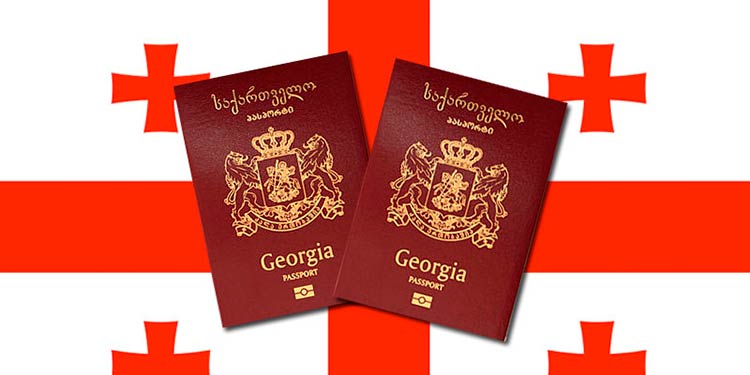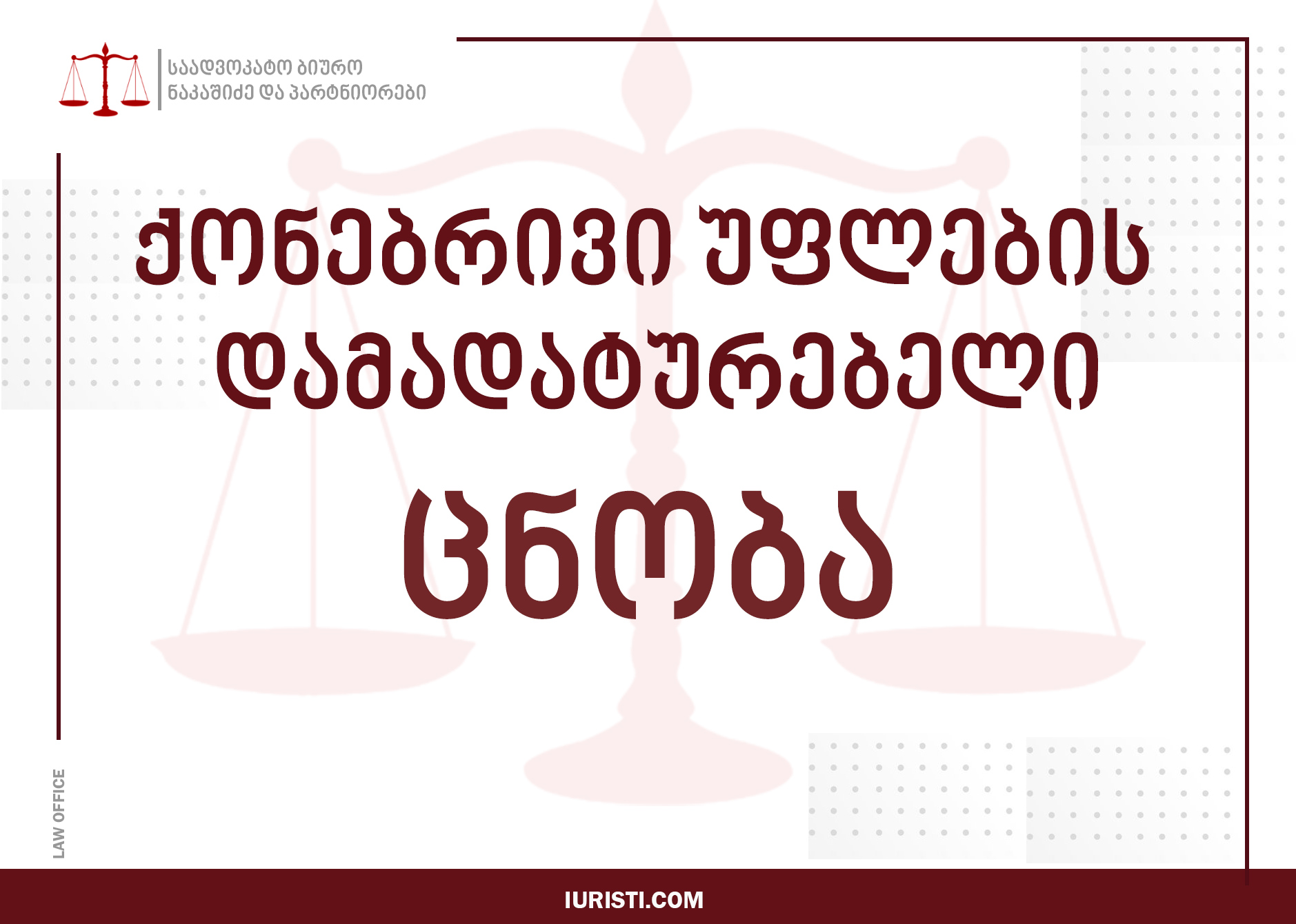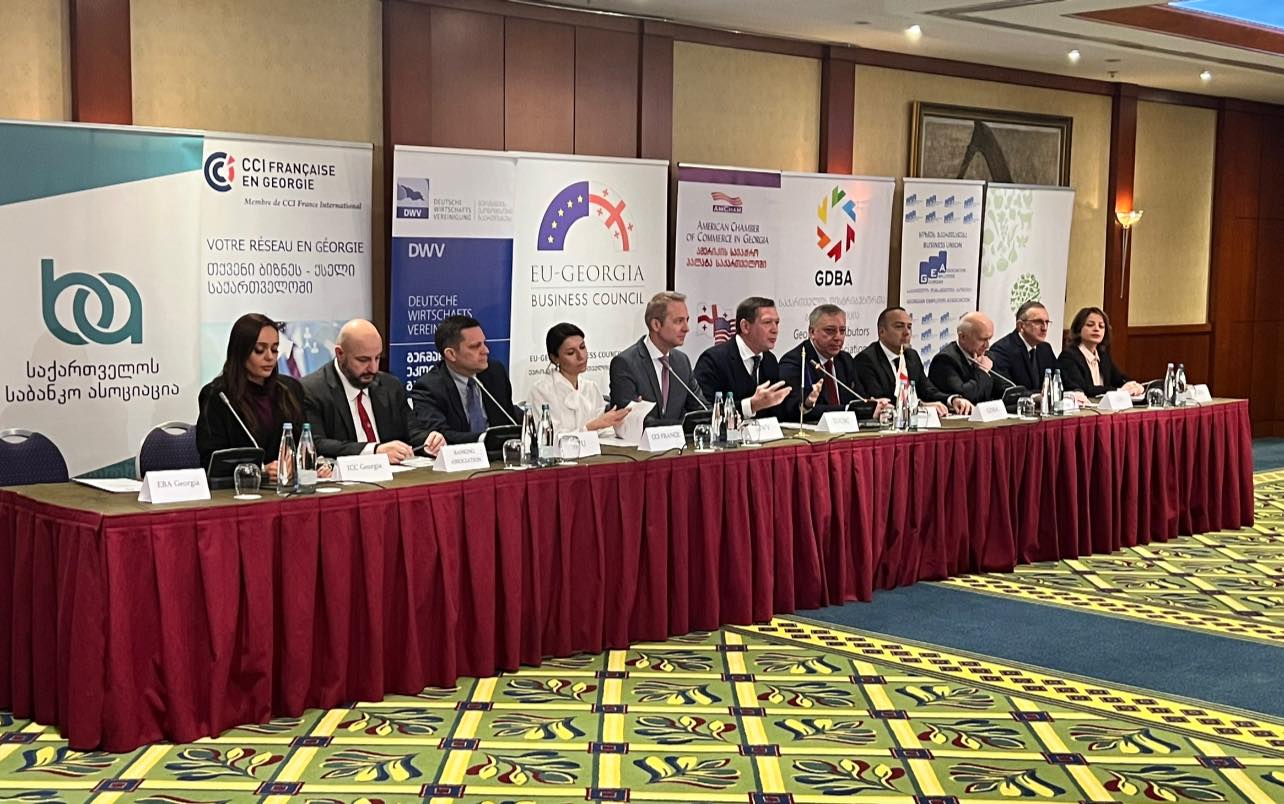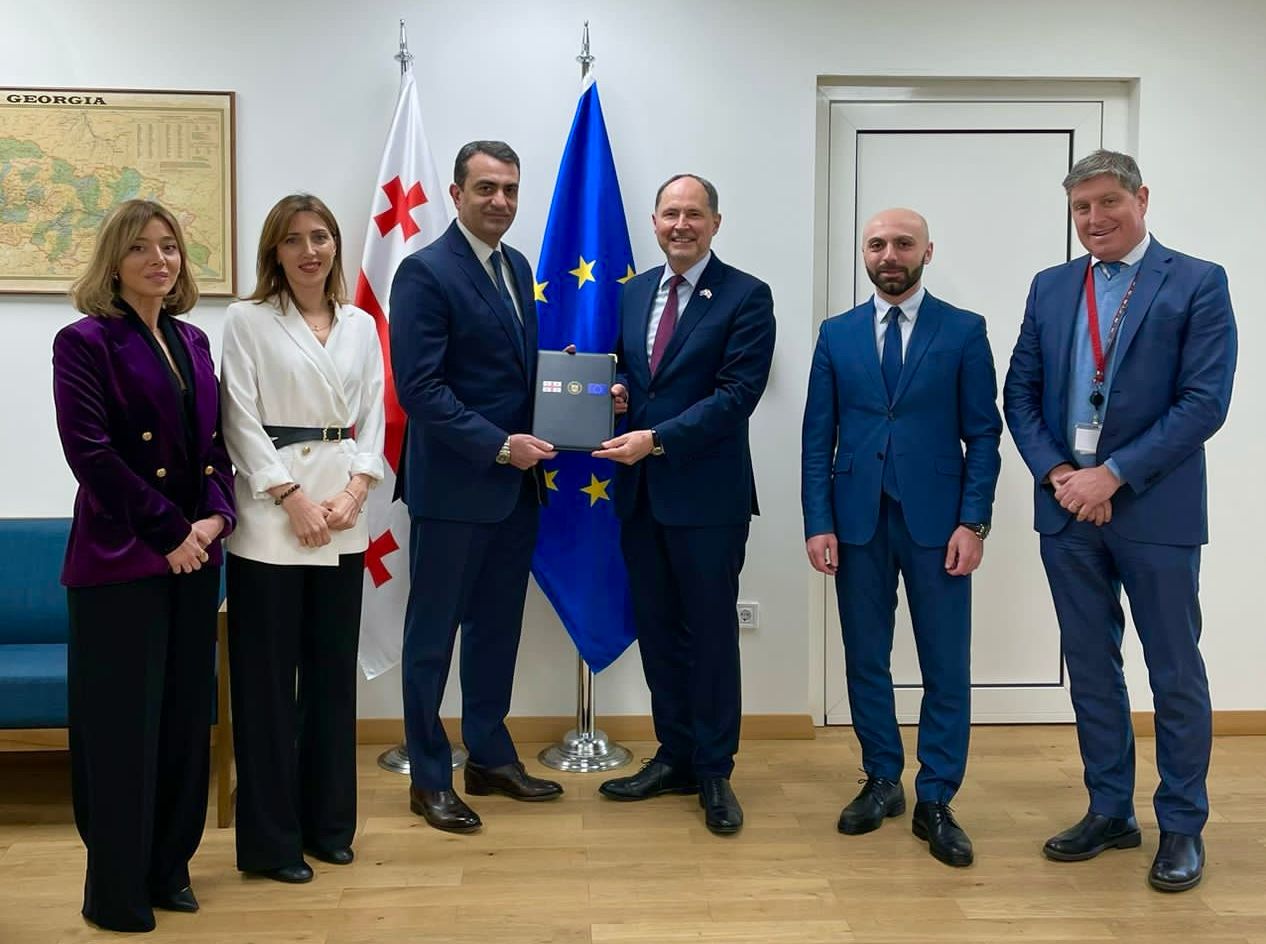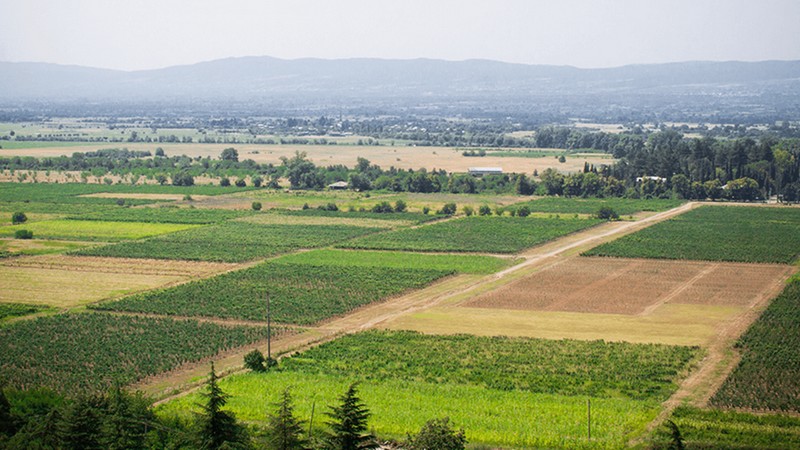Forms of International Protection in Georgia: Refugee, Humanitarian, and Temporary Protection Status
imigration lawyer in Georgia / nana nakashidze / ადვოკატი / Advokati | lawyer / iuristi / ადვოკატი / სტატიები / ადვოკატის ნომერი / სიახლე
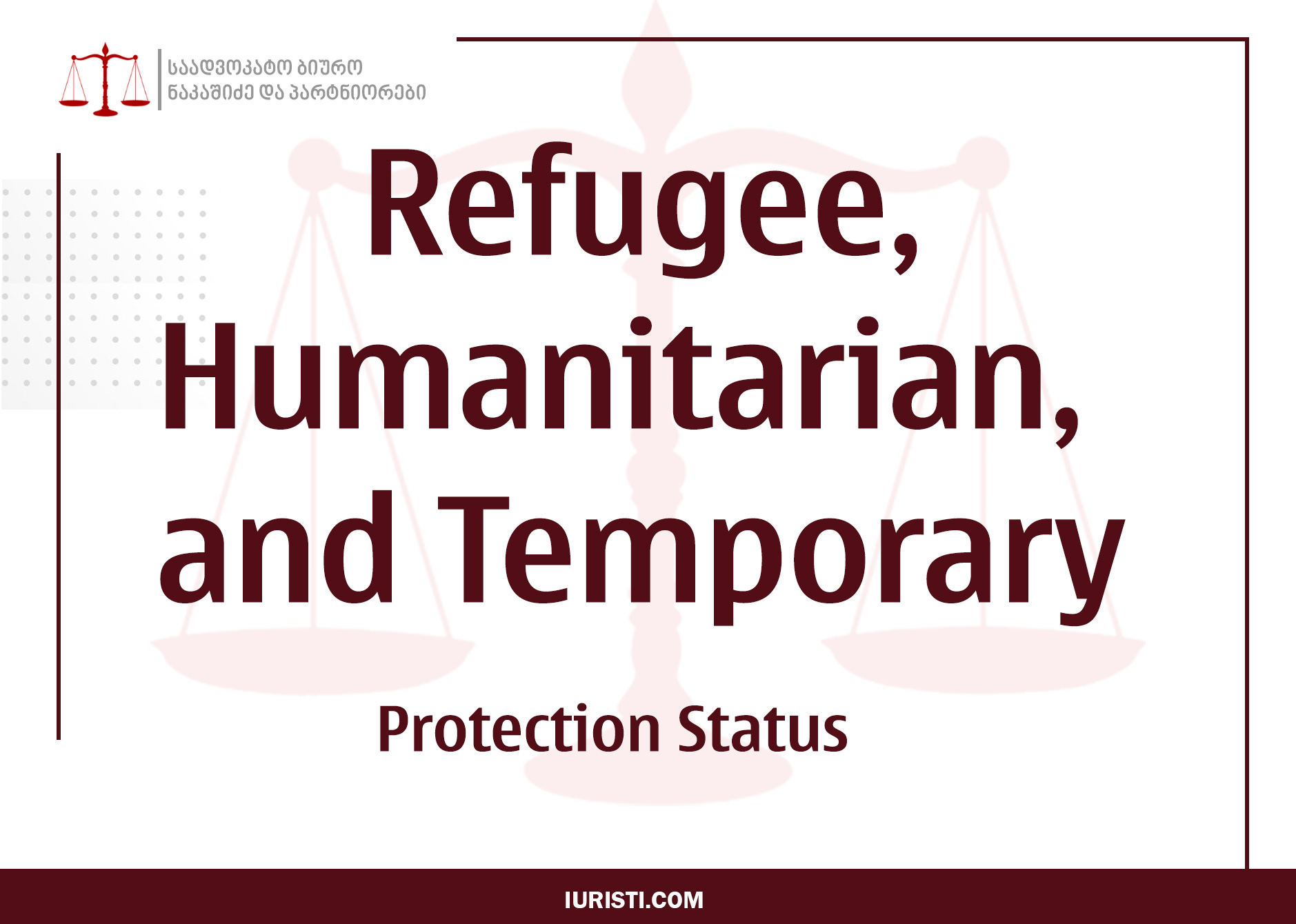
Forms of International Protection in Georgia: Refugee, Humanitarian, and Temporary Protection Status
In Georgia, there are three primary forms of international protection designed for individuals who are unable to remain in their home country due to various risks. This article will explore the essence of each protection form, the criteria for eligibility, and the duration of their application, while referencing relevant laws and case law to provide a comprehensive understanding.
Refugee Status
Refugee status is granted to individuals who have been forced to flee their country and have a well-founded fear of persecution upon return. This fear may stem from the person's race, religion, nationality, membership in a particular social group, or political opinion. According to the Organic Law of Georgia on Refugees and Humanitarian Status, individuals who cannot or do not wish to seek protection from their home country due to such fear are eligible to apply for refugee status.
Court Practice
Court decisions in Georgia on refugee status often rely on European Court of Human Rights (ECHR) precedents. These cases highlight the evidentiary requirements necessary to prove the fear of persecution, which plays a crucial role in granting refugee status. It is essential that applicants provide substantial proof of the threats they face.
Humanitarian Status
Humanitarian status is granted to individuals who do not meet the criteria for refugee status but face a serious risk upon returning to their home country. Humanitarian protection is provided to those who have a well-founded fear of:
The threat of the death penalty;
Torture, inhuman, or degrading treatment;
A serious individual risk to life due to violence, armed conflict, or widespread human rights violations.
Legal Regulations
Under Georgian law, humanitarian status is initially granted for one year, but it can be extended if the situation that prompted the initial application persists. The Ministry of Internal Affairs oversees the extension process and ensures that the protection needs continue to be addressed through appropriate legal mechanisms.
Temporary Protection Status
Temporary protection is granted to large groups of people who flee en masse due to violence, international or internal armed conflicts, or massive human rights violations. This form of protection is designed to handle urgent, large-scale influxes of individuals requiring international protection. It is initially granted for one year and may be extended if the circumstances persist.
Court Practice and Examples
Many cases in Georgian courts emphasize the importance of documentation and the strength of evidence in applications for international protection. For example, the European Court of Human Rights has ruled in several instances that returning individuals to a country where they face serious danger violates international legal principles. These precedents guide the decisions of Georgian courts in similar matters.
This article aims to clarify the different forms of international protection available in Georgia, including refugee, humanitarian, and temporary protection status. Each form provides specific mechanisms to safeguard individuals who face different kinds of risks in their home country.
კონსულტაციისთვის დაგვიკავშირდით
 საქართველოში
საქართველოში  598 419 416
598 419 416
თბილისი, ალ.ყაზბეგის №47 (მეტრო დელისი)
თბილისი, გურამიშვილის N23 ა (მეტრო ღრმაღელე)
 იტალიაში ქართველი ოპერატორი
იტალიაში ქართველი ოპერატორი  351 5 47 00 47
351 5 47 00 47
Italia, Bari, Piazza Nicola Balenzano, 12 A
მსგავსი სიახლეები
Forms of International Protection in Georgia, Forms of International, Protection in Georgia, Refugee, Humanitarian, Temporary Protection Status, lawyer, legalconsultation, refugeeright, humanitarianprotection, temporaryprotection, Georgia, internationalpr

Forms of International Protection in Georgia: Refugee, Humanitarian, and Temporary Protection Status
In Georgia, there are three primary forms of international protection designed for individuals who are unable to remain in their home country due to various risks. This article will explore the essence of each protection form, the criteria for eligibility, and the duration of their application, while referencing relevant laws and case law to provide a comprehensive understanding.
Refugee Status
Refugee status is granted to individuals who have been forced to flee their country and have a well-founded fear of persecution upon return. This fear may stem from the person's race, religion, nationality, membership in a particular social group, or political opinion. According to the Organic Law of Georgia on Refugees and Humanitarian Status, individuals who cannot or do not wish to seek protection from their home country due to such fear are eligible to apply for refugee status.
Court Practice
Court decisions in Georgia on refugee status often rely on European Court of Human Rights (ECHR) precedents. These cases highlight the evidentiary requirements necessary to prove the fear of persecution, which plays a crucial role in granting refugee status. It is essential that applicants provide substantial proof of the threats they face.
Humanitarian Status
Humanitarian status is granted to individuals who do not meet the criteria for refugee status but face a serious risk upon returning to their home country. Humanitarian protection is provided to those who have a well-founded fear of:
The threat of the death penalty;
Torture, inhuman, or degrading treatment;
A serious individual risk to life due to violence, armed conflict, or widespread human rights violations.
Legal Regulations
Under Georgian law, humanitarian status is initially granted for one year, but it can be extended if the situation that prompted the initial application persists. The Ministry of Internal Affairs oversees the extension process and ensures that the protection needs continue to be addressed through appropriate legal mechanisms.
Temporary Protection Status
Temporary protection is granted to large groups of people who flee en masse due to violence, international or internal armed conflicts, or massive human rights violations. This form of protection is designed to handle urgent, large-scale influxes of individuals requiring international protection. It is initially granted for one year and may be extended if the circumstances persist.
Court Practice and Examples
Many cases in Georgian courts emphasize the importance of documentation and the strength of evidence in applications for international protection. For example, the European Court of Human Rights has ruled in several instances that returning individuals to a country where they face serious danger violates international legal principles. These precedents guide the decisions of Georgian courts in similar matters.
This article aims to clarify the different forms of international protection available in Georgia, including refugee, humanitarian, and temporary protection status. Each form provides specific mechanisms to safeguard individuals who face different kinds of risks in their home country.
კონსულტაციისთვის დაგვიკავშირდით საქართველოში
საქართველოში  598 419 416
598 419 416 თბილისი, ალ.ყაზბეგის №47 (მეტრო დელისი)
თბილისი, გურამიშვილის N23 ა (მეტრო ღრმაღელე)
 იტალიაში ქართველი ოპერატორი
იტალიაში ქართველი ოპერატორი  351 5 47 00 47
351 5 47 00 47 Italia, Bari, Piazza Nicola Balenzano, 12 A
